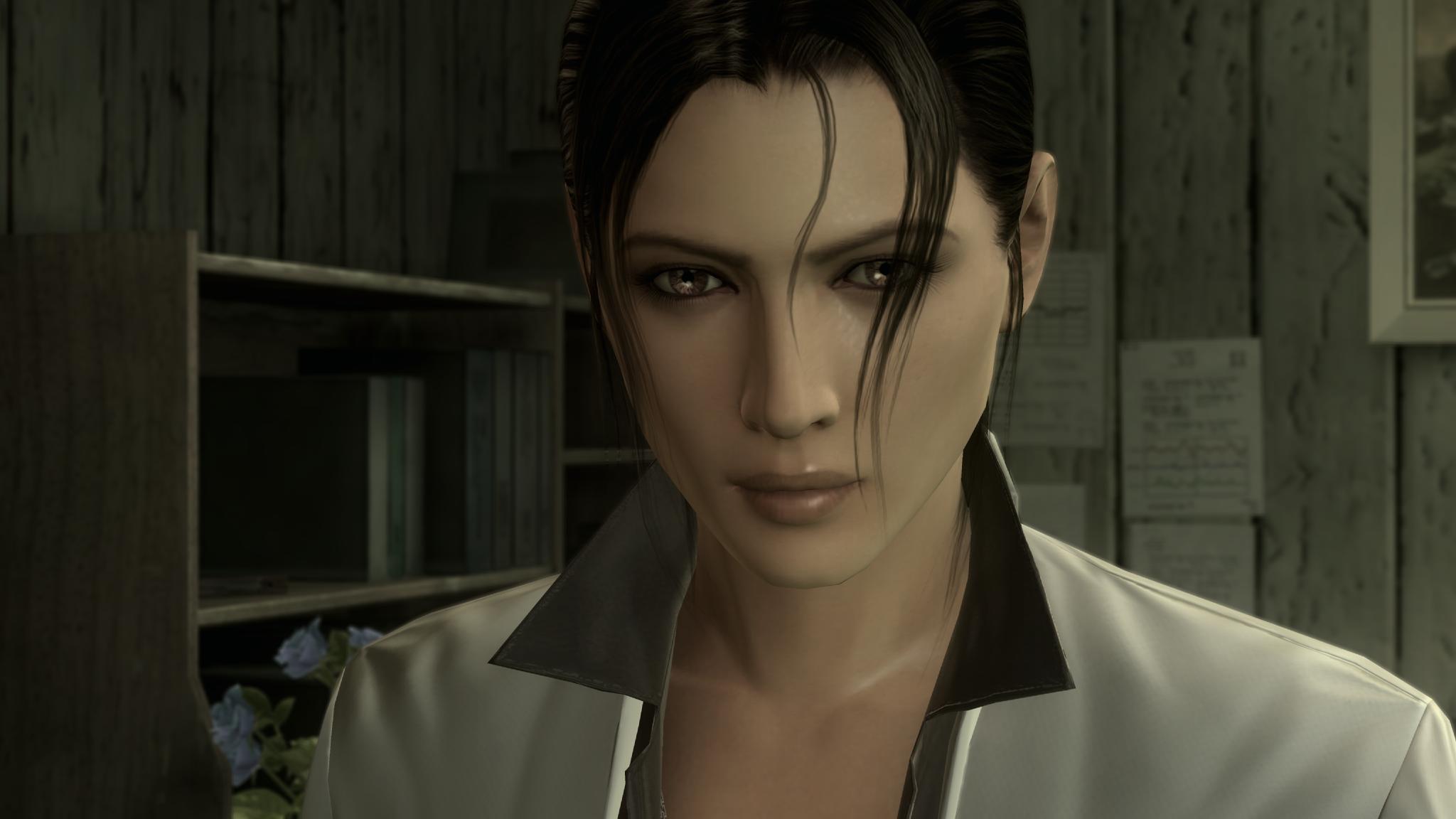Why you can trust 12DOVE
MGS4, as ever, is mired in huge cut-scenes – you can skip or fast-forward them, but that's missing the point. You want to know what's going on, but don't want to endure clumsy scripting, or needless exposition. MGS4 could be hours shorter, and be considerably better for it. While we adore Kojima's unflinching vision, and attention to detail, if someone had bravely asked him to edit more carefully, we wouldn't be talking about MGS4 as a contentious masterpiece, but the greatest game ever. More confusingly, it might be just that – but only time will reveal its depths, or place its eccentricity in context.
Damn, maybe that is MGS4's genius – its uncompromising peaks and troughs, tied to a level of self-awareness that verges on brilliance. Some of its overarching themes are that of power, responsibility and corruption; which could be read as a veiled confession that Kojima – with a position of almost unparalleled creativity in the games industry – is wilfully abusing his power, but mindful of doing so.
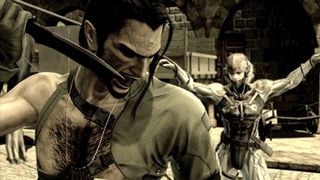
Typically, the game you expect – of Snake battling side-by-side with Militia/PMCs – ceases to exist a third into the plot. It apexes with an assault on a Power Station in South America (with you sniping distant PMCs and firing RPGs at enemy choppers), then, suddenly, it's gone. After a sequence of three or four epic, breathless, set pieces that perfect everything MGS3 set out to achieve, the game downshifts into Europe with a stunning return to core MGS values. We can't reveal where it goes from there – diehard fans could guess – but, let's say, one nostalgic moment is perfectly handled, you get to live out a fantasy and your deadliest foes aren't PMCs, but robot bowling balls.
Sadly, after South America, the game ceases to flow, and instead becomes a staccato showreel of bite-sized gameplay chunks, glued together by mammoth cut-scenes. The components are impeccable – and the game does return to relatively seamless action – but the disconnection is somewhat jarring. You end up shunted between locations and gameplay styles in a fashion that betrays everything the epic five-minute ladder climb in MGS3 set out to achieve in terms of pacing, continuity and scale.
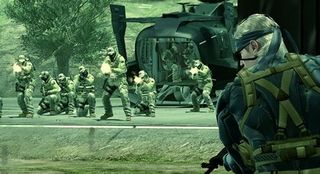
The core sneaking/shooting mechanics are relatively intuitive, but fiddly for newcomers, and abruptly introduced. It isn't until about six hours in that you feel any mastery, and in our first two completions, we largely neglected stealth and the variety of sleeping gas mines, evasion items (like sexy magazines) and the remote-control Mk II. When you finish the game, you're awarded ranks like 'Pig' (for using multiple health items), but, tellingly, we've only unlocked six of the 40. The ultimate reward is for finishing the game with no kills, tripping only three alerts. When you consider we killed 518 people, tripping 110 alerts on our second completion, you begin to understand the game's gargantuan scale and depth.
The PMC/Militia side-switching dynamic works well, but changing allegiance is as simple as who you shot last. The weapon customisation is superb – just adding a Grip to your M4 makes a dramatic improvement to stability. The later weapons – again, protected by spoilers – are immensely satisfying, reducing once-impossible battles to one-shot takedowns. Finish the game, and you'll unlock even more amazing weapons – including some very special tranquilizer darts.
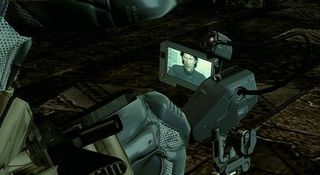
It's easier than MGS3, with some disappointingly literal, if atmospheric, early boss battles. Despite some incredible use of sound, and cute touches, the first encounter with Laughing Octopus is an elaborate shoot-'em-up. There's nothing to rival the scale, or invention of, say, the battles with The End or The Sorrow in MGS3. Two climactic scraps come close – the last is especially thrilling, for reasons that'll become clear – but we'd have appreciated more oblique solutions, or ingenious shortcuts.
Still, with a game this exceptional, it feels like criticising the Venus de Milo for having no arms. The mechanics are fine-tuned to perfection (bar the wonky auto lock-on), the production values are unprecedented (the intro movie is stunning, while certain 'on-rails' sections made our skin prickle with sheer cinematic glee) and the story sporadically leaves you reeling, or hanging on every word. The frustration – and it bites harder given the breathless pace of earlier scenes – is that all the brilliant gameplay, plotting, philosophy and detail gets swamped in the 'noise' of unnecessary content. For every killer line, there's ten of filler, and the conclusion feels like an "Oh, and another thing…" fan-pleasing trawl, rather than the bold finale we hoped for.
More info
| Genre | Action |
| Description | Snake's next adventure takes him out of the jungles and corridors he's used to, dropping him into the middle of full-on futuristic battlefields as a mercenary superspy. |
| Franchise name | Metal Gear |
| UK franchise name | Metal Gear Solid |
| Platform | "PS3","Xbox 360" |
| US censor rating | "Mature","Mature" |
| UK censor rating | "","" |
| Alternative names | "Metal Gear Solid IV: Guns of the Patriots","MGS4" |

Helen Mirren doesn't want to see a female James Bond because the character is "born out of profound sexism"
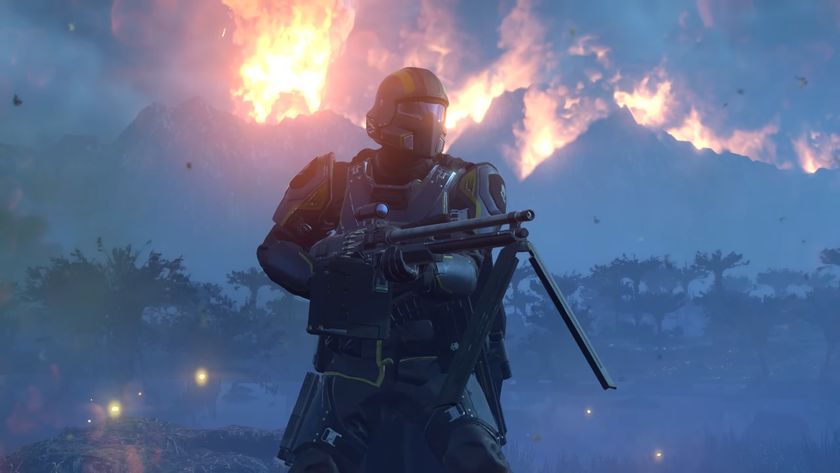
Helldivers 2 is having players return to 'space Vietnam' as the Automatons have returned one year after we liberated Malevelon Creek
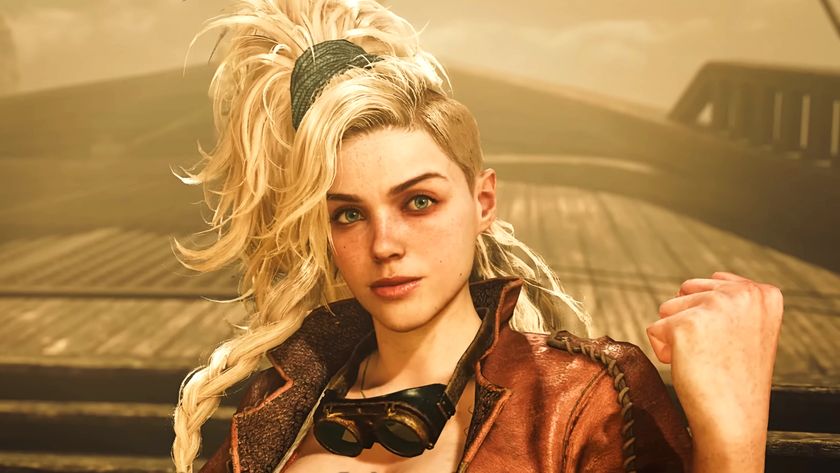
Monster Hunter Wilds continues its record-breaking streak, with Capcom now celebrating over 10 million sales for the new action RPG
